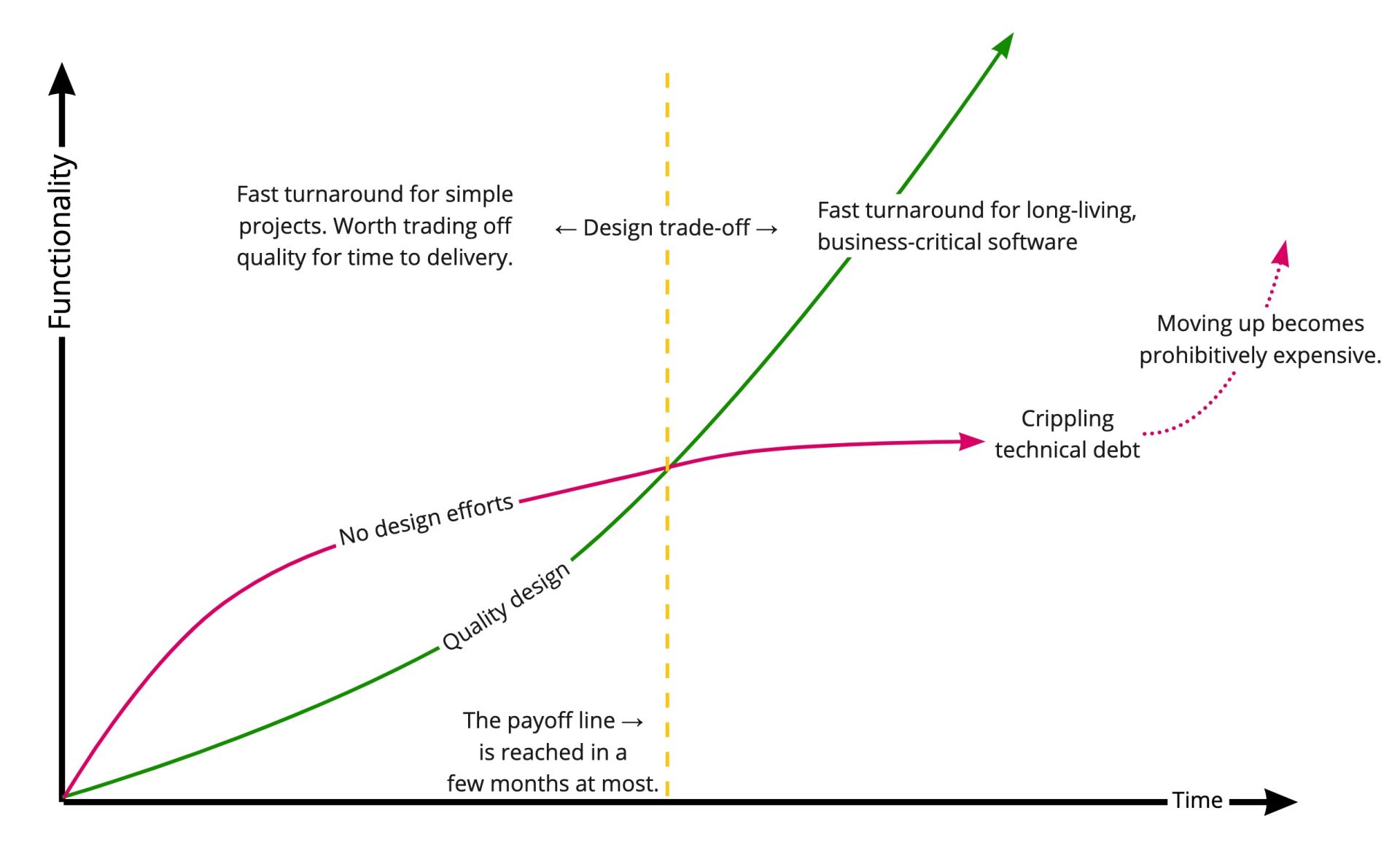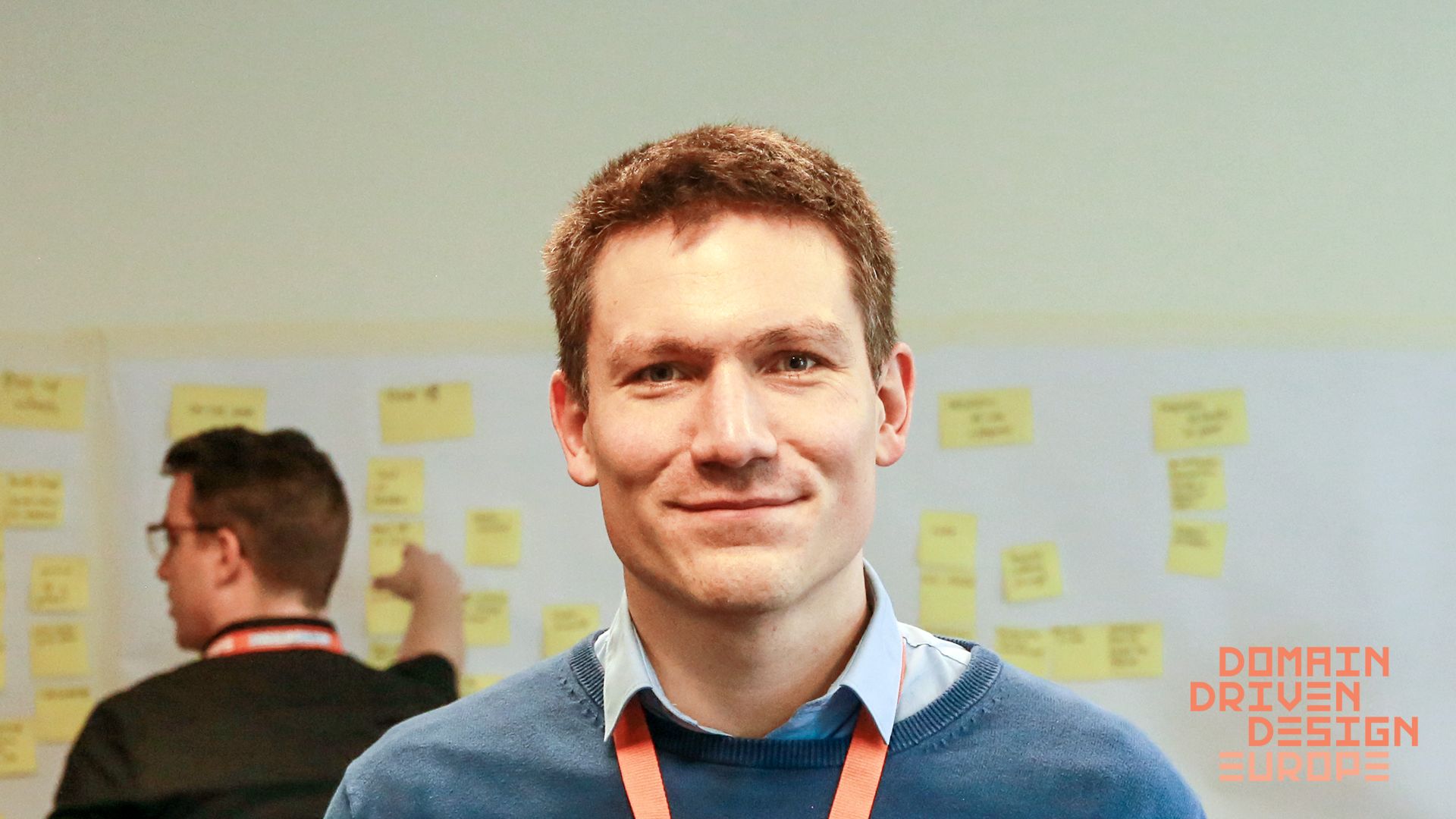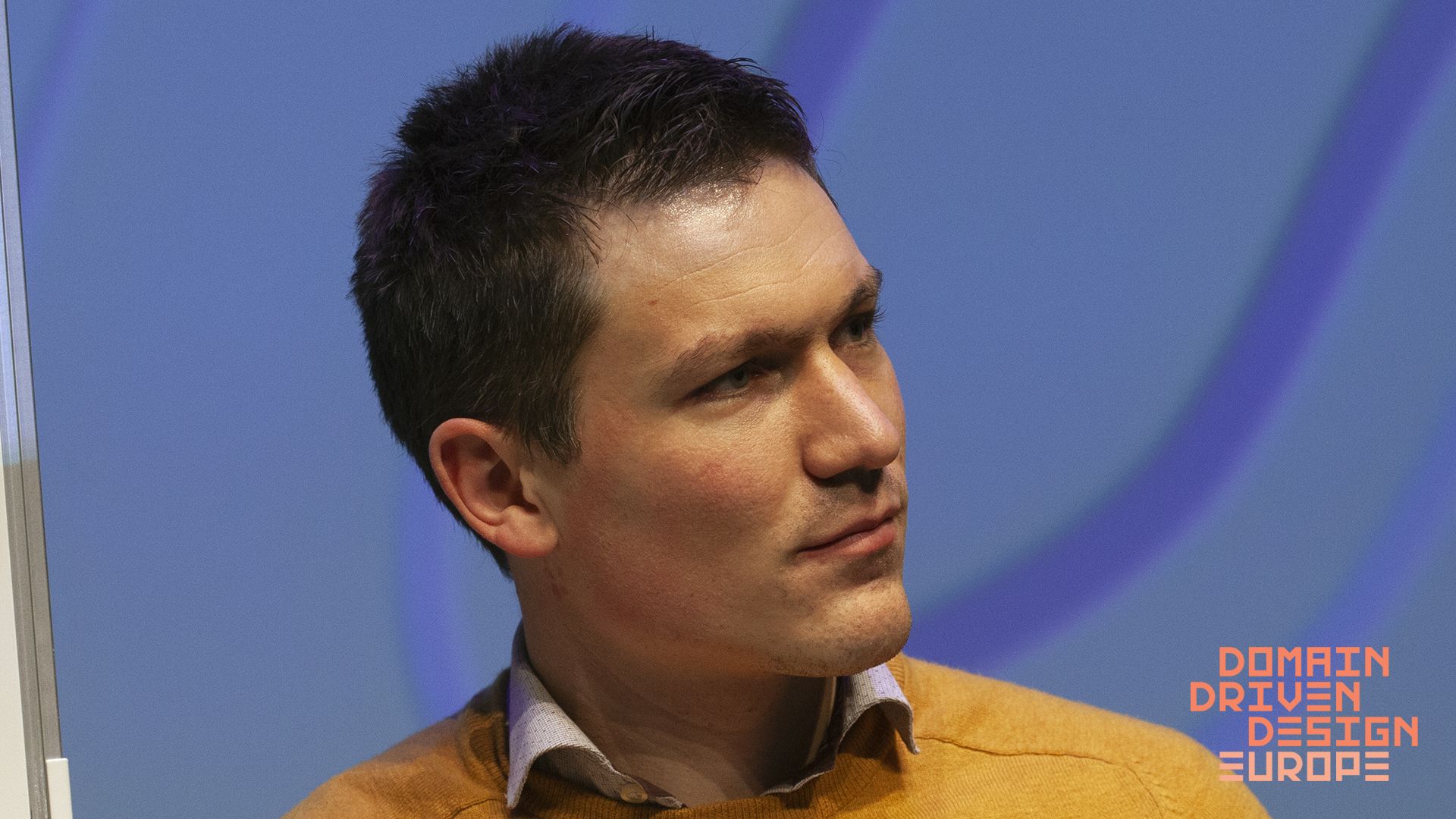Quality software design makes your team faster.

Domain-Driven Design stands out as software methodology. It tackles complexity at the local level (in the code), at the system level, and in between systems (integration). It's never design for the sake of design: by centring on the domain, DDD puts software to work for the business.
We've created the world's first complete DDD training program for engineers and engineering teams. During 4 months of weekly modules of 3.5 hours each, your team will grow skilled in Domain-Driven Design, as well as the practices & habits to make DDD work. In a mix of practical and theoretical sessions on test automation, collaboration, design patterns, refactoring, modelling, EventStorming, Context Mapping, and more, they'll be ready to tackle your organisation's future challenges.
Who is this for?
- Your scale-up is hiring engineers faster than you can train them.
- You're leading a new project, a modernization of an existing system, or a re-engineering effort, and you want your team to avoid the pitfalls that harmed the old systems.
- You're a freelance software engineer, looking to learn the practices to tackle more complex problems, and increase your impact at your clients.
The format of weekly half day sessions allows your organisation to keep working on deliverables, while gradually upskilling your teams.
We can help you figure out who in your team will benefit from this program or one of our other courses. Contact us.
Learning objectives
At the end of this training you will be able to:
- apply pairing and ensemble programming techniques to improve the effectiveness of your team
- implement new and improve features with test-driven development
- know and understand refactoring essentials
- explain tactical patterns and use them in your code
- use design level event storming to model problems into great designs
- implement the event stormed models into code
- carry out a big picture event storming to find boundaries and design bounded contexts
Schedule
Timezone: Europe, Brussels.
Series Q4-2023
- October 5, 2023, 9:00 – 12:30
- October 12, 2023, 9:00 – 12:30
- October 19, 2023, 9:00 – 12:30
- October 26, 2023, 9:00 – 12:30
- November 2, 2023, 9:00 – 12:30
- November 9, 2023, 9:00 – 12:30
- November 16, 2023, 9:00 – 12:30
- November 23, 2023, 9:00 – 12:30
- November 30, 2023, 9:00 – 12:30
- December 7, 2023, 9:00 – 12:30
- December 14, 2023, 9:00 – 12:30
- December 21, 2023, 9:00 – 12:30
- December 28, 2023, 9:00 – 12:30
- January 4, 2024, 9:00 – 12:30
- January 11, 2024, 9:00 – 12:30
Teaching Style
- We use Zoom (or similar), Miro (virtual collaborative whiteboard).
- There are a healthy mix of theory and practical group exercises.
- Participants should reserve some time each week to do some individual exercises (about 1h max per week).
- Programming exercises are designed to teach concepts that universal to all Object-Oriented languages. Depending on the context, the exercises use pseudocode, or are available in a number of popular languages, or are designed to not require knowledge of the language used.
- There are collaborative domain discovery and modelling exercises.
- The number of participants per session is limited for exercises that require a lot of interaction with the instructors.
Instructors
Thomas Coopman is the lead instructor for the first series, and some modules may be taught by other instructors. The course outline is designed by Mathias Verraes and Thomas Coopman.
Pricing
The standard price is €5200 (+VAT) per participant.
We must charge 21% VAT for both B2B and B2C purchases, according to Belgian tax law (art. 21, §3, 3° W.Btw).
We offer discounts for:
- Early Bird purchases
- Individuals who purchase out-of-pocket
- Group purchases
- Combo purchases with other workshops
- ...
We can also propose payments plan.
Contact us to inquire about pricing options, or to discuss whether this is the right training for your team.
Testimonials
I liked the variety, interactiveness and in-depth knowledge of the trainer, he handled feedback well. It already impacted my team during the course. We found a better way of discussing using Miro and making things explicit.
The workshop was thorough and deep. The exercises forced me to think about "simple" things and understand them on a deeper level. I already have noticed some surprising changes in how I code. What used to be fuzzy is more clear now as if I'm visually modeling in my head when I'm coding.
Thomas is an excellent teacher. He approaches complex subjects in a clear and organized way, making them easy to understand.
I liked the curriculum and the frequent feedback loops through the exercises. I can now use DDD methods when helping my team to tackle a difficult challenge and hopefully soon they can do it on their own.


































